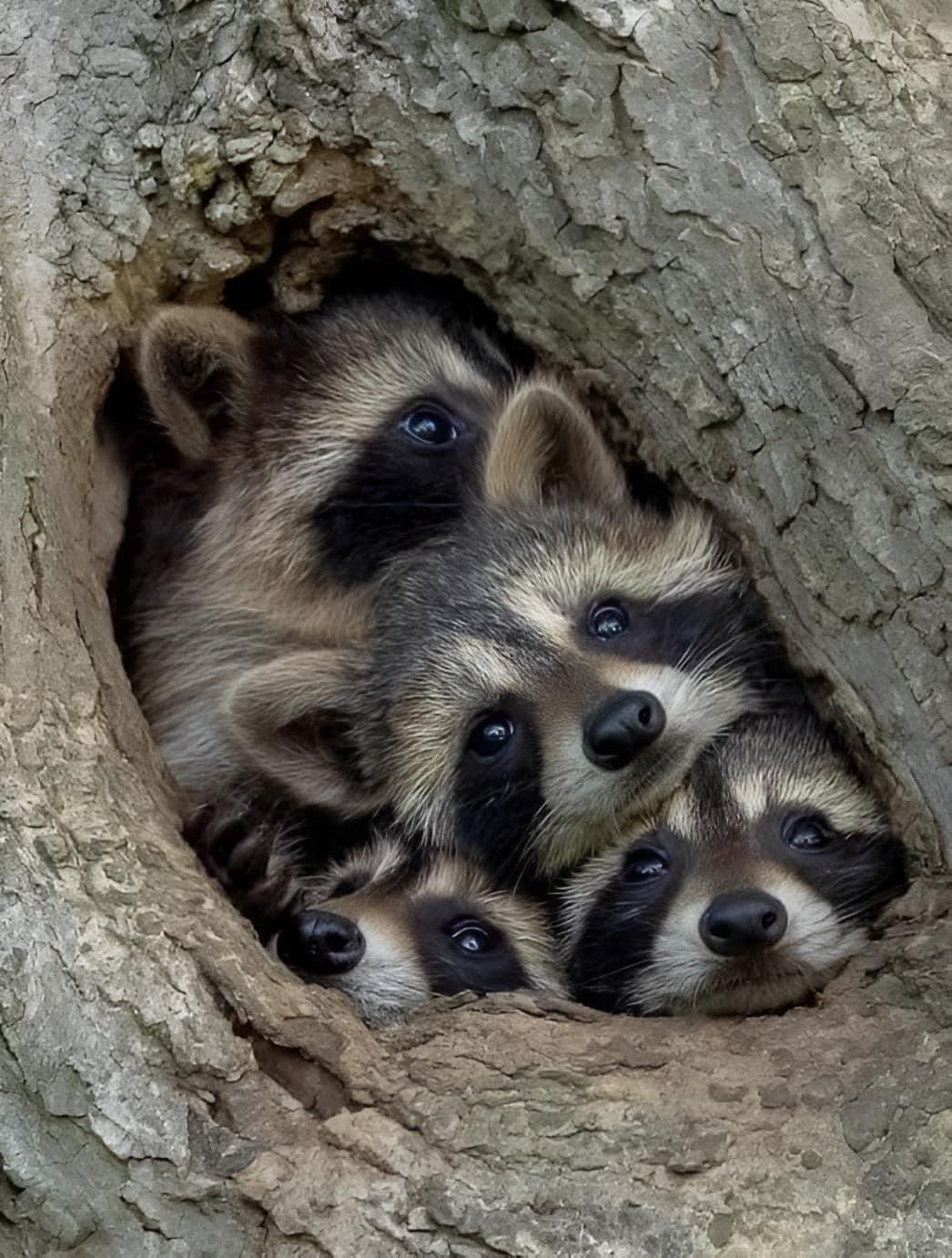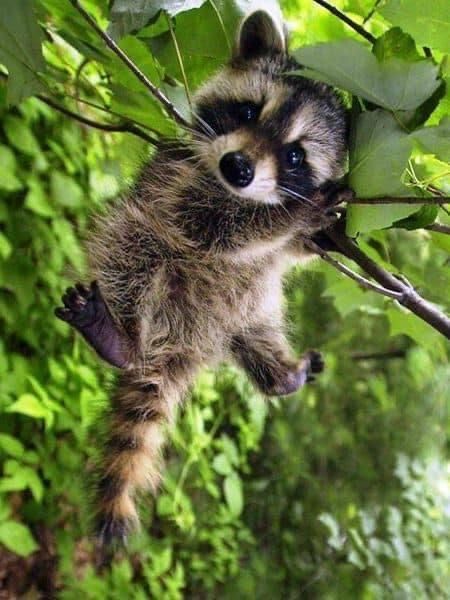The Secret Intelligence of Raccoons: Memory, Curiosity, and Connection

With their bandit-like masks and nimble little paws, raccoons often appear to us as playful tricksters of the night. They shuffle through alleyways, tip over trash bins, and sneak bites of unattended food, earning a reputation as clever mischief-makers. But beyond their antics lies something far more profound—a sharp intelligence and a memory so keen that scientists now compare them to primates.
More Than Just Survival Instincts
Research has revealed that raccoons possess long-term memory lasting over three years, an extraordinary trait for a wild mammal. They can recall human faces, specific locations, and even experiences of kindness or danger long after they’ve happened. For example, a raccoon fed once by a stranger may return not only because of hunger, but because it remembers where it felt safe. This suggests raccoons are not just reacting to immediate needs; they are storing impressions and learning from them in ways that shape their behavior.
Masters of Problem-Solving
Anyone who has ever tried to “raccoon-proof” a garbage bin knows the challenge. These animals have been observed opening jars, unlatching cages, and even manipulating locks that would puzzle other wildlife. In controlled studies, raccoons demonstrated the ability to solve puzzles, recognize patterns, and repeat complex tasks with remarkable precision—sometimes months or even years later. Their problem-solving skills, combined with dexterous paws that function almost like hands, make them true escape artists and urban survivalists.
Remembering Kindness
What fascinates scientists most is not just raccoons’ ability to outsmart locks and lids, but their capacity to recall kindness and safety. Unlike many wild animals that operate on instinct alone, raccoons form impressions of people and places. A safe backyard, a gentle human encounter, or even a remembered danger can influence their choices for years. In this way, their memories hint at a deeper sense of awareness—an ability to connect past experiences with future decisions.
Beyond the “Troublemaker” Image
It’s easy to dismiss raccoons as pests, especially in cities where they thrive on human leftovers. But their adaptability and intelligence reveal a creature far more complex than the stereotype of a masked bandit. Raccoons are mindful observers of the world around them, navigating human environments with both caution and curiosity. They are animals that don’t just survive in our presence—they remember us, weaving us into their maps of trust, risk, and opportunity.
A Small Brain, A Big Mind
Though their brains are modest in size, raccoons demonstrate cognitive abilities that challenge our assumptions about intelligence in the animal kingdom. They remind us that sharp minds don’t always come in large packages, and that memory—the ability to carry forward experiences—can be as important for survival as claws or teeth.
In the end, raccoons are more than urban tricksters. They are thinkers, learners, and rememberers—creatures whose sharp eyes and sharp minds leave a lasting impression not only on their world, but on ours.











